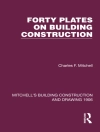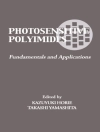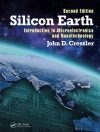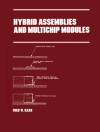Conservation was the first nationwide political movement in American history to grapple with environmental problems like waste, pollution, resource exhaustion, and sustainability. At its height, the conservation movement was a critical aspect of the broader reforms undertaken in the Progressive Era (1890-1910), as the rapidly industrializing nation struggled to protect human health, natural beauty, and ‘national efficiency.’ This highly effective Progressive Era movement was distinct from earlier conservation efforts and later environmentalist reforms.
Conservation in the Progressive Era places conservation in historical context, using the words of participants in and opponents to the movement. Together, the documents collected here reveal the various and sometimes conflicting uses of the term ‘conservation’ and the contested nature of the reforms it described.
This collection includes classic texts by such well-known figures as Theodore Roosevelt, Gifford Pinchot, and John Muir, as well as texts from lesser-known but equally important voices that are often overlooked in environmental studies: those of rural communities, women, and the working class. These lively selections provoke unexpected questions and ideas about many of the significant environmental issues facing us today.
İçerik tablosu
Foreword
Preface
Introduction
Part 1: Defining and Debating Conservation
Gifford Pinchot, ‘Principles of Conservation’
Theodore Roosevelt, ‘Special Message from the President of the United States’
William E. Smythe, ‘The Miracle of Irrigation’
Ladies’ Home Journal, ‘What Is Meant by Conservation?’
George L. Knapp, ‘The Other Side of Conservation’
H. J. M. Mattes, ‘Another National Blunder’
Part 2: Perspectives on Wildlife Conservation
George Bird Grinnell, ‘American Game Protection: A Sketch’
Mabel Osgood Wright, ‘Keep on Pedaling!’
William T. Hornaday, Our Vanishing Wild Life: Its Extermination and Preservation
David Shepard Merrill, ‘The Education of a Young Pioneer in the Northern Adirondacks’
Part 3: The Utility of ‘Conservation’
Samuel Gompers, ‘Conservation of Our Natural Resources’
J. Horace Mc Farland, ‘Shall We Have Ugly Conservation?’
Mary Ritter Beard, ‘Civic Improvement’
Irving Fisher, ‘National Vitality, Its Wastes and Conservation’
Ellen H. Richards, Conservation by Sanitation: Air and Water Supply, Disposal of Waste
Part 4: Smoke and Conservation in the City
Charles A. L. Reed, ‘An Address on the Smoke Problem’
Mrs. Ernest R. Kroeger, ‘Smoke Abatement in St. Louis’
Herbert M. Wilson, ‘The Cure for the Smoke Evil’
Ernest L. Ohle, ‘Smoke Abatement: A Report on Recent Investigations Made at Washington University’
Part 5: Conservation, Preservation, and Hetch Hetchy
Warren Olney, ‘Water Supply for the Cities About the Bay of San Francisco’
E. T. Parsons, ‘Proposed Destruction of Hetch-Hetchy’
John Muir, ‘Hetch Hetchy Valley’
Bibliographical Essay
Index
Yazar hakkında
David Stradling is assistant professor of history at the University of Cincinnati. He is the author of Smokestacks and Progressives: Environmentalists, Engineers, and Air Quality in America, 1881-1951.












